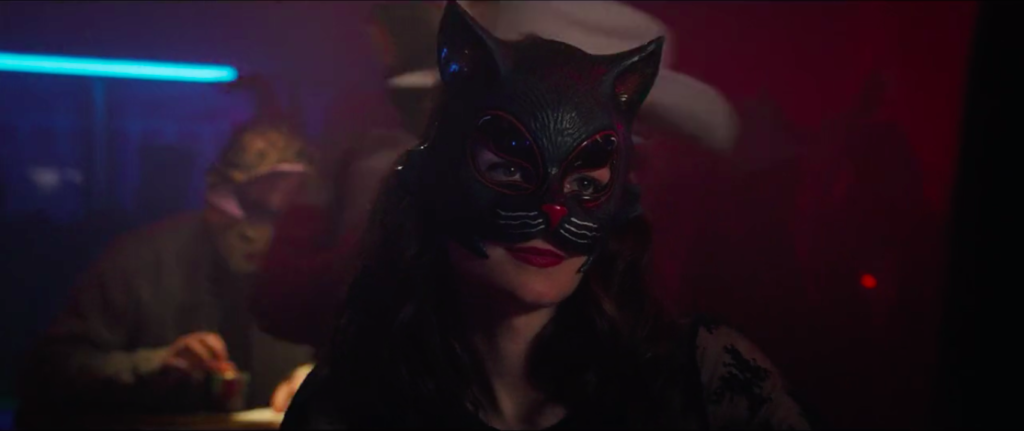
Halloween Ends (2022) marks the close of director David Gordon Green’s tenure as the creative force steering the Halloween franchise. Green made the franchise feel more current, more urgent by focusing on the legacies of shared trauma. But with each installment Green merely reiterated this message rather than exploring its various nuances. By the time the credits roll on Halloween Ends it’s clear that for Green trauma either makes one stronger or turns one into a force of evil.
The vigilantism of Halloween 4: The Return Of Michael Myers (1988) that inspired much of Green’s Halloween Kills (2021) comes into play again during the climax of Halloween Ends. After the cathartic mutilation of Myers, the serial killer’s corpse is tied to the top of a car and paraded through Haddonfield. While the mobs in Halloween Kills recalled frenzied supporters of President Trump, this gesture of communal grief and closure recalls Christopher Nolan’s quasi-fascistic Dark Knight Rises (2012). In Green’s Halloween films trauma necessitates vigilantism. While this may make for good drama the political message is problematic.
What Green and company do in Halloween Ends that’s unique to the franchise is a kind of adrenaline shot of Psycho II (1983). For the first time in the history of the Halloween franchise Michael Myers has a sidekick and protege. This would-be “boogey man”, Corey Cunningham (Rohan Campbell), is depicted as an unlucky sap who is gradually drained of his humanity by the endless persecution of the community. Green traces Corey’s downfall with the same classist, fetishistic eye as Rob Zombie turned on Myers in his own film Halloween (2007). For the first time since Halloween: The Curse Of Michael Myers (1995) the basic formula of these films has been altered, albeit only by the slightest of degrees.
In the Halloween films, Green’s included, there is no real sense of continuity at all other than the spectacle of Myers hacking girls to bits. What John Carpenter and Debra Hill envisioned as an anthology franchise, with Tommy Lee Wallace’s Halloween III: Season Of The Witch (1982), that was aborted due to poor box office returns proved inevitable after all. What Hill and Carpenter didn’t realize at the time was that Myers himself would be as essential to this anthology as the Halloween holiday itself.
In the context of an anthology series Halloween (1978), Halloween III: Season Of The Witch, and Halloween: The Curse Of Michael Myers are the true exemplars because each of these films is strikingly original in its own way. Halloween Ends or any of Green’s films are incapable of achieving that degree of aesthetic individuality due to the fact that Green is far too concerned with appeasing the franchise’s devout fanbase.
In appealing to an existing fanbase Halloween Ends is very likely to succeed. In addition to sporting some nifty cameos (including Darcy the Mail Girl/Diana Prince), Green delivers some truly unique and upsetting kills. As stupid as the title is, Halloween Ends is more than fitting. Jamie Lee Curtis finally wins once and for all and the franchise has ended (hopefully forever).
